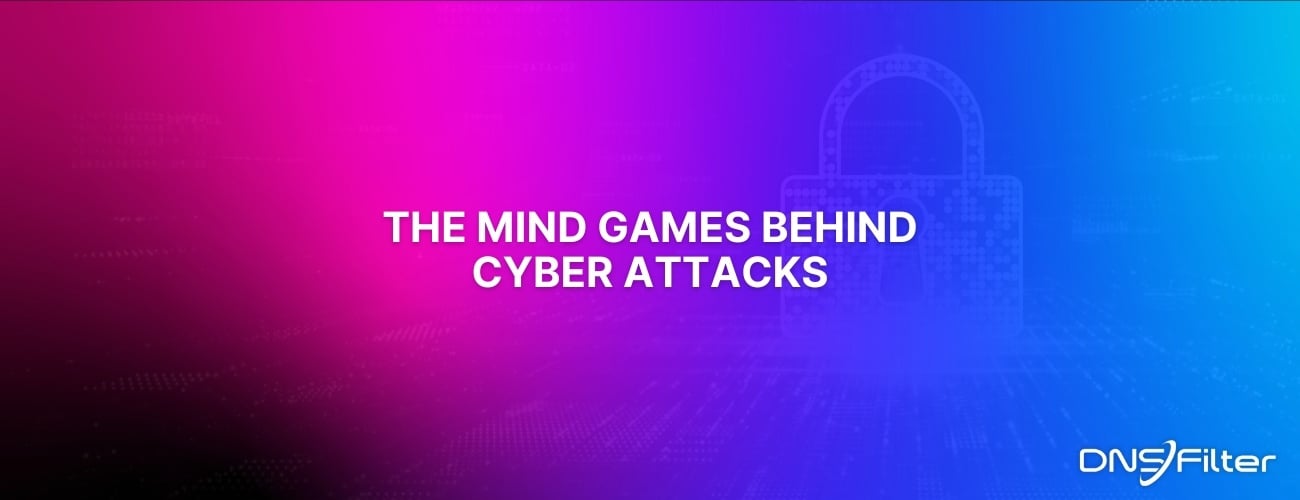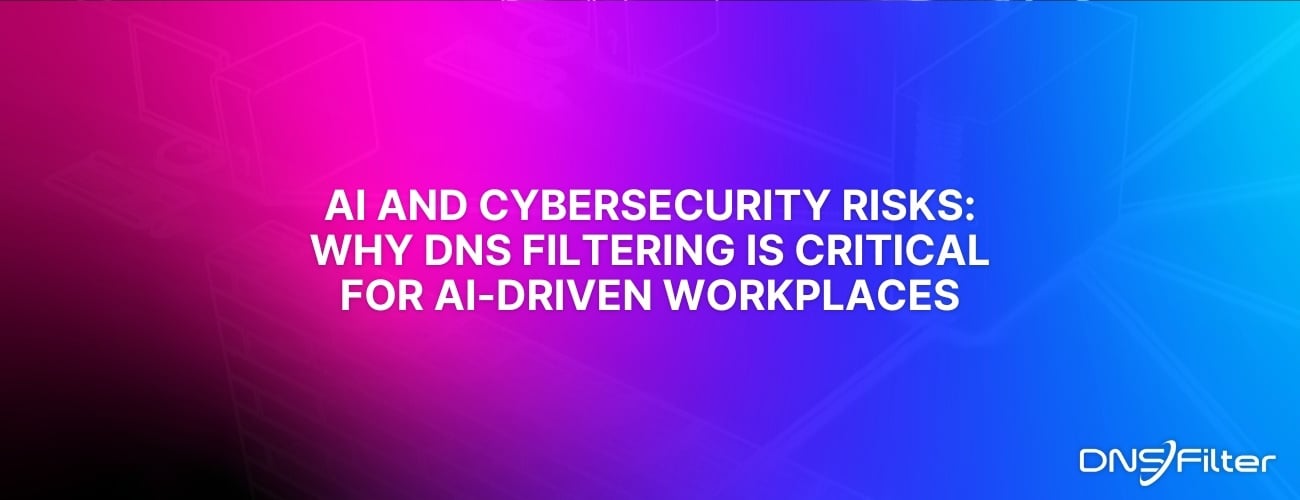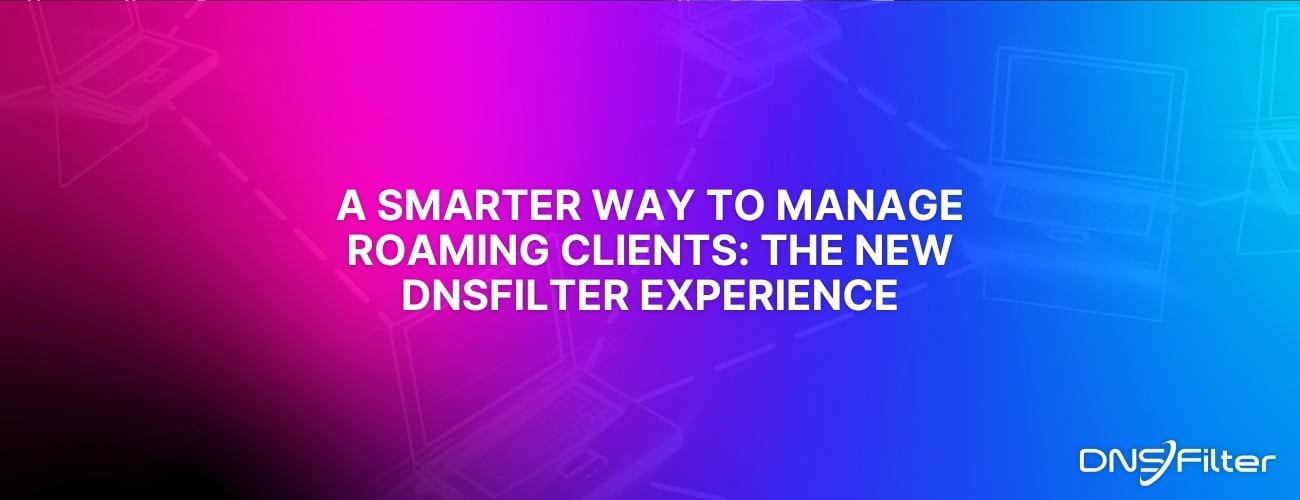Share this
DNSFilter Seeing Increased Malicious Activity
by Serena Raymond on May 26, 2023 8:30:00 AM
Over the last week, DNSFilter has seen an increase in phishing attempts. In addition, we’re keeping an eye on a lot of cyber attacks that are getting reported including advanced phishing attacks, PTO phishing attacks, pig butchering and the targeted attacks on critical infrastructure.
Being a highly customizable product, administrators create policies to ensure they are in line with your organization's or clients’ needs. We encourage our customers to regularly review configured policies within DNSFilter as your needs change and as we add new options.
In order to help improve the overall security of your organization, we wanted to highlight some policy options that may not be as well known.
Let’s start with some options to block newly seen domains by DNSFilter:
- New Domains - Domains which have been registered in the last 30 days and which have a high probability of serving malicious resources
- Very New Domains - Domains which have been registered in the last 24 hours which have a high probability of serving malicious resources.
*Note: For a domain to be categorized as New or Very New, it needs to be seen (resolved) by DNSFilter first.
One additional option to further increase protection for newly registered domains but not yet seen (resolved) by DNSFilter is under the Extra Settings section:
- Block Uncategorized Sites - This setting controls whether or not to block domains that the system has not classified (including newly-registered domains). It is off by default because many Content Servers and Content Distribution Networks (CDNs) are served from domains that have no web content to scan but are important to end user experience (Office Online documents, Dropbox uploads etc)
*Note: Because the Block Uncategorized Sites category can impact the user experience, we recommend turning it on individually after a policy is applied and monitoring results.
Another option that may be helpful for any resolved domain is blocking parked domains:
- Parked Sites & Domains - These are sites which are not displaying legitimate content, but instead are showing "Parked" pages with common search terms, "Under Construction" messages, or a list of advertisements. In some cases, these may be newly registered domains. This setting is off by default.
Lastly, with Google introducing new top-level domains, attacks are already being seen on these new domains. DNSFilter can block TLDs simply by entering the TLD (without a ‘.’) in the Block List. For example, to block the entire “.zip” TLD, you would enter “zip” in the Block List.
To summarize some suggested policy configurations:
| Baseline Threat Protection | Advanced Threat Protection |
|---|---|
| Botnet | Botnet |
| Cryptomining | Cryptomining |
| Malware | Malware |
| Very New Domains | New Domains |
| Phishing & Deception | Phishing & Deception |
| Proxy & Filter Avoidance | Proxy & Filter Avoidance |
| Translation Sites | |
| Extra Settings: Block Uncategorized Sites | |
| Extra Settings: Parked Sites and Domains |
*Note: For Advanced Protection, turn on the categories under Extra Settings individually after applying baseline protection. Watch for tickets generated from users as well as our Query Log to decide if they should remain on. Security is always a balance between protection and usability. Your users need to have enough access to get their work done, in an environment that restricts them from accessing harmful content.
Lastly, no security vendor can guarantee 100% protection, so we encourage organizations to use a layered approach for security which includes security awareness training.
Share this
 The Mind Games Behind Cyber Attacks
The Mind Games Behind Cyber Attacks
Hackers have long understood that the most sophisticated firewall is no match for a well-placed psychological trick. While many focus on the technical prowess of cybercriminals, the real magic often lies in their ability to manipulate human behavior. By exploiting our natural tendencies and cognitive biases, hackers can slip past even the most robust security systems. It's not just about cracking codes; it's about cracking the human psyche.
 AI and Cybersecurity Risks: Why DNS Filtering is Critical for AI-Driven Workplaces
AI and Cybersecurity Risks: Why DNS Filtering is Critical for AI-Driven Workplaces
Artificial intelligence is transforming business operations, automating everything from customer service to data analysis. But with these advancements come new security challenges. AI-driven cyber threats are becoming more sophisticated, enabling attackers to automate phishing campaigns, generate malware, and exfiltrate sensitive data at scale. Without proper safeguards, AI tools can unintentionally leak corporate secrets or connect to malicious ...
 A Smarter Way to Manage Roaming Clients: The New DNSFilter Experience
A Smarter Way to Manage Roaming Clients: The New DNSFilter Experience
Managing endpoint security across an organization—whether as an MSP overseeing multiple customers or an admin overseeing a tech stack—should be simple, efficient, and effective. That’s why we’re excited to introduce a revamped Roaming Client management experience, designed to provide greater confidence and ease in managing your fleet of DNSFilter Roaming Clients.


